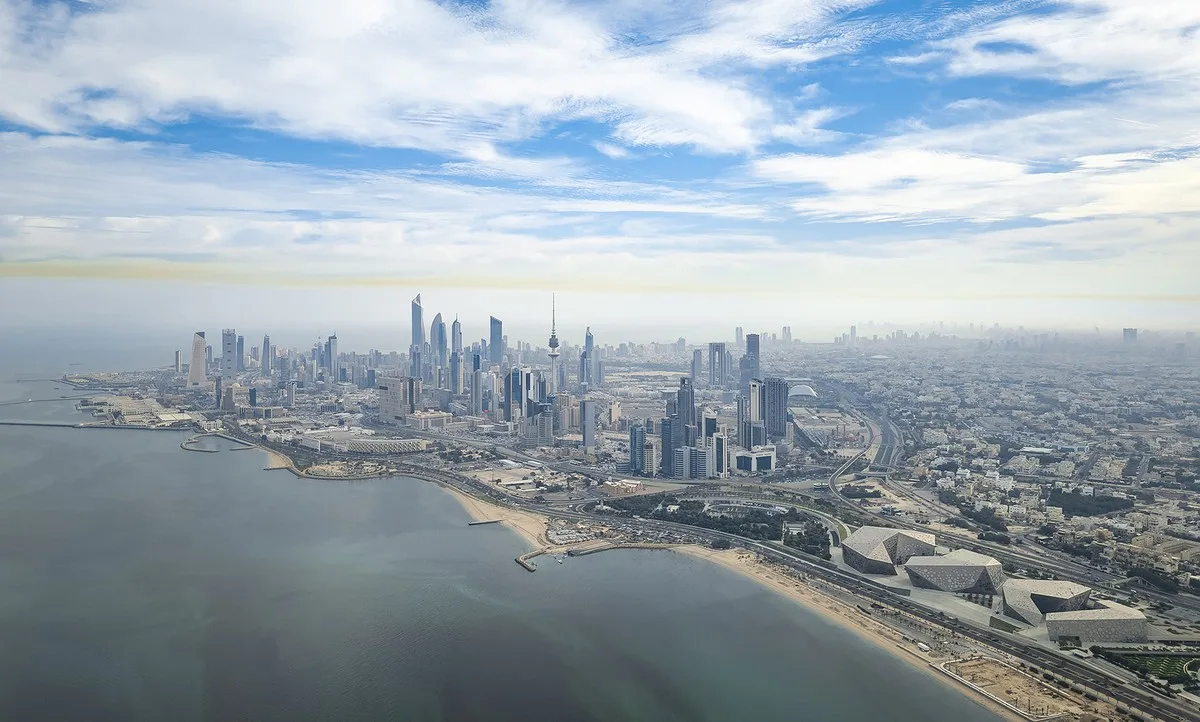24/02/2025
24/02/2025

KUWAIT CITY, Feb 24: Kuwait is witnessing an increasing level of collaboration between its public and private sectors, with a shared focus on combating carbon emissions and promoting environmental sustainability. These efforts align with international environmental standards and Kuwait's commitment to global climate change goals.
Key stakeholders from both sectors recently spoke to Kuwait News Agency (KUNA) about their roles in reducing the country's carbon footprint. Narjes Al-Hajj, a chemical engineer at the Public Authority for Industry (PAI), emphasized the industrial sector's eagerness to reduce carbon emissions by adopting the latest technologies and utilizing clean fuel sources. She highlighted that the National Industrial Strategy of 2035, outlined by PAI, aims to reinforce environmental sustainability in line with international agreements and Kuwait's 2050 carbon reduction strategy. Although the industrial sector accounts for only 2.15% of Kuwait's carbon emissions, Al-Hajj noted that the energy and water desalination sectors are the largest contributors, accounting for 95.8% of the nation's total emissions.
Asmaa Al-Sallal, Senior Engineer at the Ministry of Electricity, Water, and Renewable Energy, revealed that the ministry has launched several initiatives aimed at reducing carbon emissions, particularly in desalination plants. By implementing advanced technologies, including the use of recycled CO2 in operations, the ministry has saved approximately 1,221 tons of carbon emissions annually. This initiative has also led to significant cost reductions in boiler construction and fuel consumption.
Dalal Al-Ajmi, Head of the Climate Change Department at the Environment Public Authority (EPA), reiterated Kuwait’s commitment to the United Nations Framework Convention on Climate Change. She stated that Kuwait aims to achieve carbon neutrality by 2050, with a short-term goal of reducing emissions by 7.5% by 2035. Key initiatives include expanding renewable energy use, improving energy efficiency, and developing rapid transportation solutions. Al-Ajmi also highlighted Kuwait’s focus on the Circular Carbon Economy (CCE), which aims to reduce, reuse, and recycle carbon emissions. This includes initiatives like mangrove reforestation, where each tree sequesters up to 12.3 kilograms of CO2 annually.
On the energy front, the Kuwait Oil Company (KOC) has unveiled an ambitious plan to capture 26 million tons of CO2 annually by 2050. This project, coordinated with other entities under Kuwait Petroleum Corporation (KPC), will unfold in three stages, beginning in 2030. The captured carbon will be stored in geological reservoirs, contributing to enhanced oil and gas extraction while reducing the overall carbon footprint.
The Kuwait National Petroleum Company (KNPC) has also been proactive in reducing greenhouse gas emissions. Through flare gas recovery units (FGRUs) at its Mina Abdullah and Mina Al-Ahmadi refineries, KNPC has reduced emissions by 91,736 tons and 54,419 tons annually, respectively. The company plans to expand these units across additional refineries and further enhance energy efficiency, aiming for a 12% reduction in energy consumption and emissions.
In the academic sector, the Kuwait Foundation for the Advancement of Sciences (KFAS) launched the "White Paper for Energy Transition," a comprehensive roadmap to transform Kuwait’s energy system from its reliance on fossil fuels to a sustainable, low-carbon framework. Dina Al-Naqeeb, Program Manager at KFAS, emphasized that this transition could unlock $392 billion in economic opportunities while significantly reducing carbon emissions. Kuwait aims to achieve carbon neutrality in the oil sector by 2050 and nationwide by 2060. The transformation will include reducing oil and gas consumption, planting 340 million trees, installing 500,000 smart electricity meters, and converting 75% of government and private vehicles to electric or hybrid models.
EQUATE Petrochemical Company is also contributing to Kuwait’s green initiatives. The company has launched a carbon capture project at its Ethylene Glycol plant, capturing 735,460 tons of CO2 since its inception. The captured carbon is sent to the Kuwait Industrial Gases Company for reuse, contributing to the circular carbon economy. EQUATE plans to capture 4.3 million tons of CO2 by 2050, supporting the green economy and sustainable industrial practices.
The Kuwait Institute for Scientific Research (KISR) is further advancing Kuwait's environmental efforts by developing turquoise hydrogen technologies to reduce carbon footprints in heavy industries. KISR has also pioneered methods for recycling CO2 in concrete production, resulting in a 30% reduction in emissions. This technology plays a key role in promoting the circular carbon economy in the construction sector.
These coordinated efforts demonstrate Kuwait's commitment to achieving environmental sustainability and meeting its international climate obligations. By embracing clean technologies, enhancing energy efficiency, and promoting carbon recycling, the country is advancing its vision for a low-carbon economy while contributing to the global fight against climate change.


